
Illusion of Knowledge
Principal Category: Cognitive Biases
Authors:
• Tim McGuinness, Ph.D., DFin, MCPO, MAnth – Anthropologist, Scientist, Polymath, Director of the Society of Citizens Against Relationship Scams Inc.
The illusion of knowledge is a cognitive bias that causes individuals to believe they understand more than they actually do, which blocks learning, creates false confidence, and leaves them vulnerable to mistakes, especially after trauma. For scam victims, this bias becomes a psychological trap because it leads to the belief that they already know how scams work or that they cannot be fooled again, which prevents deeper growth. It stops victims from asking new questions, learning new warning signs, or confronting the emotional factors that contributed to their vulnerability. This bias also appears during recovery when victims impose agreement on experts or dismiss new guidance by saying, I already know this stuff, without fully engaging with the material. This false certainty creates barriers to honest reflection and leaves victims stuck in surface-level thinking. To break this pattern, victims need to practice intellectual humility, remain open to new information, and regularly question their own assumptions. Real safety and recovery come from ongoing learning and self-awareness, not from assuming mastery too soon.

The Illusion of Knowledge: How Thinking You Know Blocks Real Learning and Increases Risk
The illusion of knowledge is one of the most deceptive cognitive biases in human psychology. It occurs when someone believes they understand something more deeply or completely than they actually do. This bias is dangerous because it creates a false sense of security in what feels like knowledge, even when that knowledge is shallow, incomplete, or entirely wrong. When someone believes they already know enough, they stop seeking better information. They stop asking questions. They stop learning.
The illusion of knowledge affects everyone at some point. People experience it when they skim a headline and assume they understand the full story. They experience it when they watch a single video or read one article and feel like they have become an expert. They experience it when they hear advice in passing and think, “I already know that,” even if they never put it into practice. These moments seem harmless, but over time they build habits of overconfidence that create real problems in life.
What the Illusion of Knowledge Does
The illusion of knowledge creates a false sense of mastery. It makes people believe they understand how things work when they have only a surface-level view. In psychology, this is sometimes called the fluency effect. Information that feels easy to process often tricks the brain into thinking it is well understood. When something seems simple, the mind assumes it has been fully grasped. In reality, the complexity beneath the surface is often missed.
This bias leads people to overestimate their competence. They may refuse advice because they think they already know the answer. They may skip learning opportunities because they believe they have nothing left to learn. The illusion of knowledge also creates resistance to feedback. When someone tries to help identify blind spots, the person affected by this bias may dismiss it because they feel like an expert. This mindset closes the door to growth.
How the Illusion of Knowledge Works
Several psychological mechanisms fuel this bias. One of the main factors is cognitive ease. When the brain processes information quickly, it assumes the content is familiar and correct. This is why repetition feels like mastery. Hearing the same ideas repeatedly can lead to the belief that they are fully understood, even if they have never been applied in real life.
Confirmation bias adds to the problem. The mind naturally looks for evidence that supports what it already believes. When people think they know something, they stop looking for new information that might challenge or expand their understanding. They become comfortable with the version of reality they already have.
Social pressure plays a role as well. In many situations, pretending to know feels safer than admitting confusion. People often agree with advice to appear competent, even if they do not fully understand it. They may say Of course, I already know that in conversations because they do not want to appear uninformed. This social tendency reinforces the illusion. Over time, it becomes automatic.
The Dunning-Kruger effect is closely related. This happens when people with limited knowledge overestimate their abilities. The less someone knows about a topic, the easier it is to believe they understand it well. Real experts often know how much they still have to learn. People with shallow knowledge usually do not see the gaps in their understanding.
The Illusion of Knowledge and Scam Victims
For scam victims, the illusion of knowledge creates specific risks and recovery challenges. Before the scam, many victims believed they knew how scams worked. Thoughts like “I would never fall for that or I know better than to trust a stranger online,” create a false sense of security. Scammers understand this overconfidence. They target people who think they are too smart to be fooled because those people often let their guard down.
During the scam, the illusion of knowledge prevents critical questioning. Victims may notice red flags but dismiss them because they think they already understand how scams operate. They may believe, “This is different or This does not match the scams I have heard about.” The mind filters information through the lens of what it believes it knows, not through objective reality. This makes manipulation easier for scammers.
After the scam, the illusion of knowledge can slow recovery. Some victims attend support groups or therapy and think, “I already know this stuff.” They agree with professional advice but treat it as confirmation of what they already believed, rather than new insight. This attitude prevents deeper reflection. It keeps victims from seeing how the scam actually worked and how to better protect themselves in the future.
Victims may also impose their agreement on experts. When someone explains how manipulation works, a victim might respond, “Exactly, that is what I have been saying all along,” even if they never fully examined the concept before. This creates a barrier to learning. It feels like participation, but it actually reinforces current beliefs. It leaves no room for new ideas to reshape thinking.
Shame plays a role as well. Scam victims often experience intense shame after being deceived. The illusion of knowledge becomes a defense mechanism against that shame. It allows victims to maintain the belief that they are competent and in control, even if the scam exposed vulnerabilities. By pretending they already know the lessons, they protect their ego but block deeper healing.
How to Overcome the Illusion of Knowledge
The first step in overcoming this bias is recognizing that it exists. No one is immune. Intellectual humility is essential. People need to remind themselves, “I might not know as much as I think I do.” They must approach new information with curiosity instead of defensiveness. They need to ask questions, dig deeper, and challenge their own assumptions.
Reflective thinking helps. When someone thinks, “I already know that,” they should pause and ask, “Do I really understand this topic fully? Have I applied it in my own life? Have I tested it against real-world situations?” If the answer is no, more learning is necessary.
Staying open to feedback is important. When someone points out a blind spot, the healthiest response is to listen carefully. Assume others might see something hidden from personal view. This mindset leads to growth, even when it feels uncomfortable.
Practicing metacognition is another helpful tool. This means thinking about personal thinking patterns. Pay attention to moments of overconfidence. Notice when learning stops because something feels familiar. Familiarity is not the same as mastery.
Moving Toward Real Knowledge
The illusion of knowledge is a major barrier to personal growth, especially after betrayal trauma, such as a scam. When victims tell themselves they already know the lessons, they rob themselves of the chance to grow stronger and wiser. Real learning requires humility. It requires admitting that there is still more to understand, and that is acceptable. By staying curious, asking thoughtful questions, and letting go of false confidence, victims can create room for deeper understanding. That is how they build real resilience, not just the illusion of it.
IMPORTANT NOTE: This article is intended to be an introductory overview of complex psychological, neurological, physiological, or other concepts, written primarily to help victims of crime understand the wide-ranging actual or potential effects of psychological trauma they may be experiencing. The goal is to provide clarity and validation for the confusing and often overwhelming symptoms that can follow a traumatic event. It is critical to understand that this content is for informational purposes only and does not constitute or is not a substitute for professional medical advice, diagnosis, or treatment. If you are experiencing distress or believe you are suffering from trauma or its effects, it is essential to consult with a qualified mental health professional for personalized care and support.

Welcome to the SCARS INSTITUTE Journal of Scam Psychology
A Journal of Applied Scam, Fraud, and Cybercrime Psychology – and Allied Sciences
A dedicated site for psychology, victimology, criminology, applied sociology and anthropology, and allied sciences, published by the SCARS INSTITUTE™ – Society of Citizens Against Relationship Scams Inc.
TABLE OF CONTENTS
A Question of Trust
At the SCARS Institute, we invite you to do your own research on the topics we speak about and publish, Our team investigates the subject being discussed, especially when it comes to understanding the scam victims-survivors experience. You can do Google searches but in many cases, you will have to wade through scientific papers and studies. However, remember that biases and perspectives matter and influence the outcome. Regardless, we encourage you to explore these topics as thoroughly as you can for your own awareness.
Please Leave A Comment
Recent Comments
On Other Articles
[better_recent_comments number=”5″ format=”{avatar} on {post}: “{comment}” {date}” avatar_size=”20″]
A Note About Labeling!
We often use the term ‘scam victim’ in our articles, but this is a convenience to help those searching for information in search engines like Google. It is just a convenience and has no deeper meaning. If you have come through such an experience, YOU are a Survivor! It was not your fault. You are not alone! Axios!
Statement About Victim Blaming
Some of our articles discuss various aspects of victims. This is both about better understanding victims (the science of victimology) and their behaviors and psychology. This helps us to educate victims/survivors about why these crimes happened and to not blame themselves, better develop recovery programs, and to help victims avoid scams in the future. At times this may sound like blaming the victim, but it does not blame scam victims, we are simply explaining the hows and whys of the experience victims have.
These articles, about the Psychology of Scams or Victim Psychology – meaning that all humans have psychological or cognitive characteristics in common that can either be exploited or work against us – help us all to understand the unique challenges victims face before, during, and after scams, fraud, or cybercrimes. These sometimes talk about some of the vulnerabilities the scammers exploit. Victims rarely have control of them or are even aware of them, until something like a scam happens and then they can learn how their mind works and how to overcome these mechanisms.
Articles like these help victims and others understand these processes and how to help prevent them from being exploited again or to help them recover more easily by understanding their post-scam behaviors. Learn more about the Psychology of Scams at www.ScamPsychology.org
Psychology Disclaimer:
All articles about psychology, neurology, and the human brain on this website are for information & education only
The information provided in these articles is intended for educational and self-help purposes only and should not be construed as a substitute for professional therapy or counseling.
While any self-help techniques outlined herein may be beneficial for scam victims seeking to recover from their experience and move towards recovery, it is important to consult with a qualified mental health professional before initiating any course of action. Each individual’s experience and needs are unique, and what works for one person may not be suitable for another.
Additionally, any approach may not be appropriate for individuals with certain pre-existing mental health conditions or trauma histories. It is advisable to seek guidance from a licensed therapist or counselor who can provide personalized support, guidance, and treatment tailored to your specific needs.
If you are experiencing significant distress or emotional difficulties related to a scam or other traumatic event, please consult your doctor or mental health provider for appropriate care and support.
Also, please read our SCARS Institute Statement About Professional Care for Scam Victims – here
If you are in crisis, feeling desperate, or in despair please call 988 or your local crisis hotline.
SCARS Institute Resources:
- If you are a victim of scams, go to www.ScamVictimsSupport.org for real knowledge and help
- Enroll in SCARS Scam Survivor’s School now at www.SCARSeducation.org
- To report criminals, visit reporting.AgainstScams.org – we will NEVER give your data to money recovery companies like some do!
- Sign up for our free support & recovery help at www.SCARScommunity.org
- Follow us and find our podcasts, webinars, and helpful videos on YouTube: www.youtube.com/@RomancescamsNowcom
- SCARS Institute Songs for Victim-Survivors: www.youtube.com/playlist…
- Learn about the Psychology of Scams at www.ScamPsychology.org
- Dig deeper into the reality of scams, fraud, and cybercrime at www.ScamsNOW.com and www.RomanceScamsNOW.com
- Scam Survivor’s Stories: www.ScamSurvivorStories.org
- For Scam Victim Advocates, visit www.ScamVictimsAdvocates.org
- See more scammer photos on www.ScammerPhotos.com


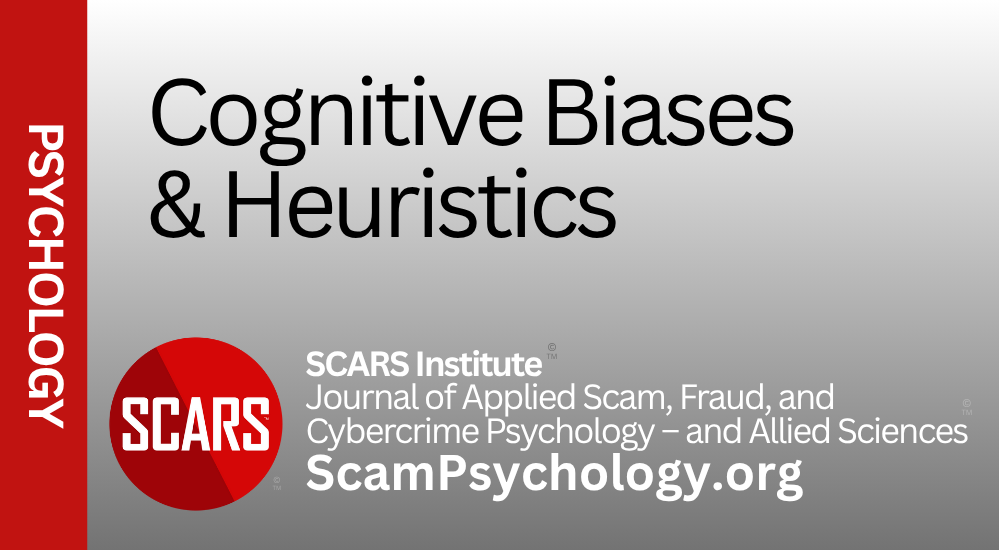

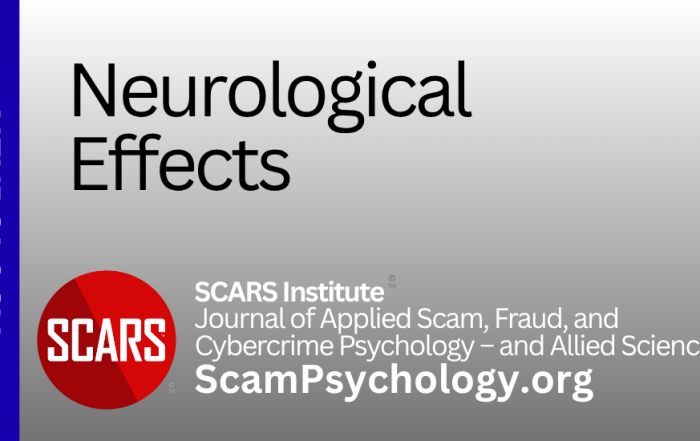

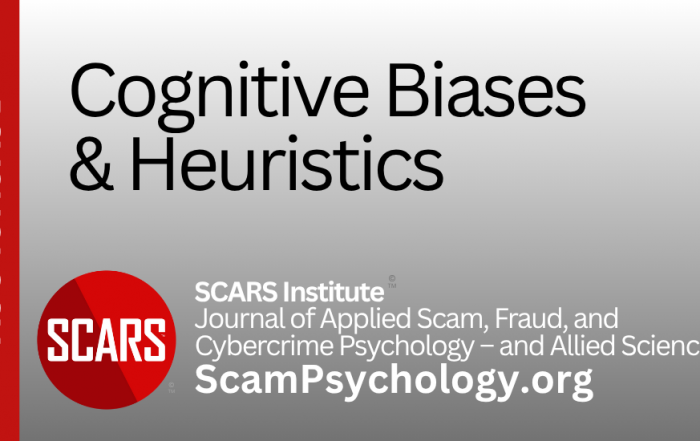
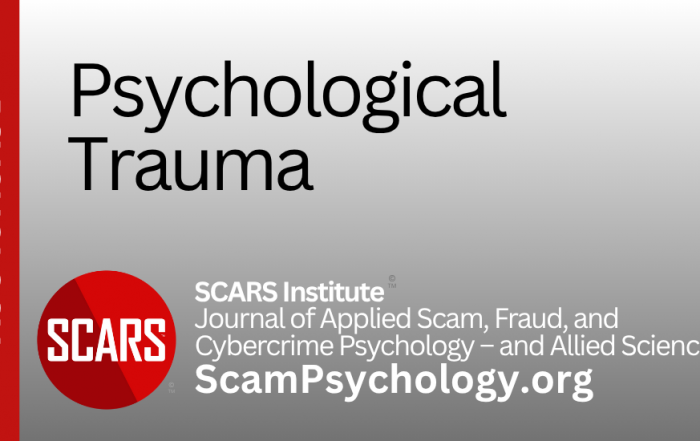

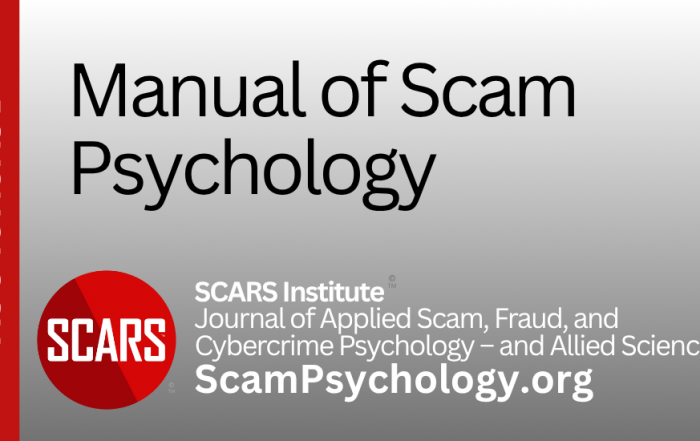

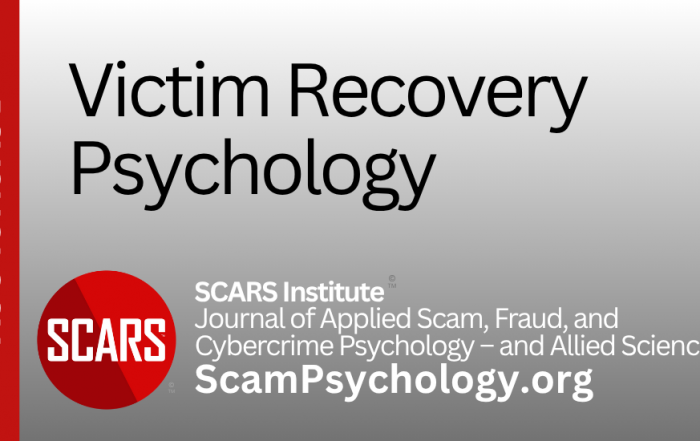

![niprc1.png1_-150×1501-11[1]](https://scampsychology.org/wp-content/uploads/2025/05/niprc1.png1_-150x1501-111.webp)